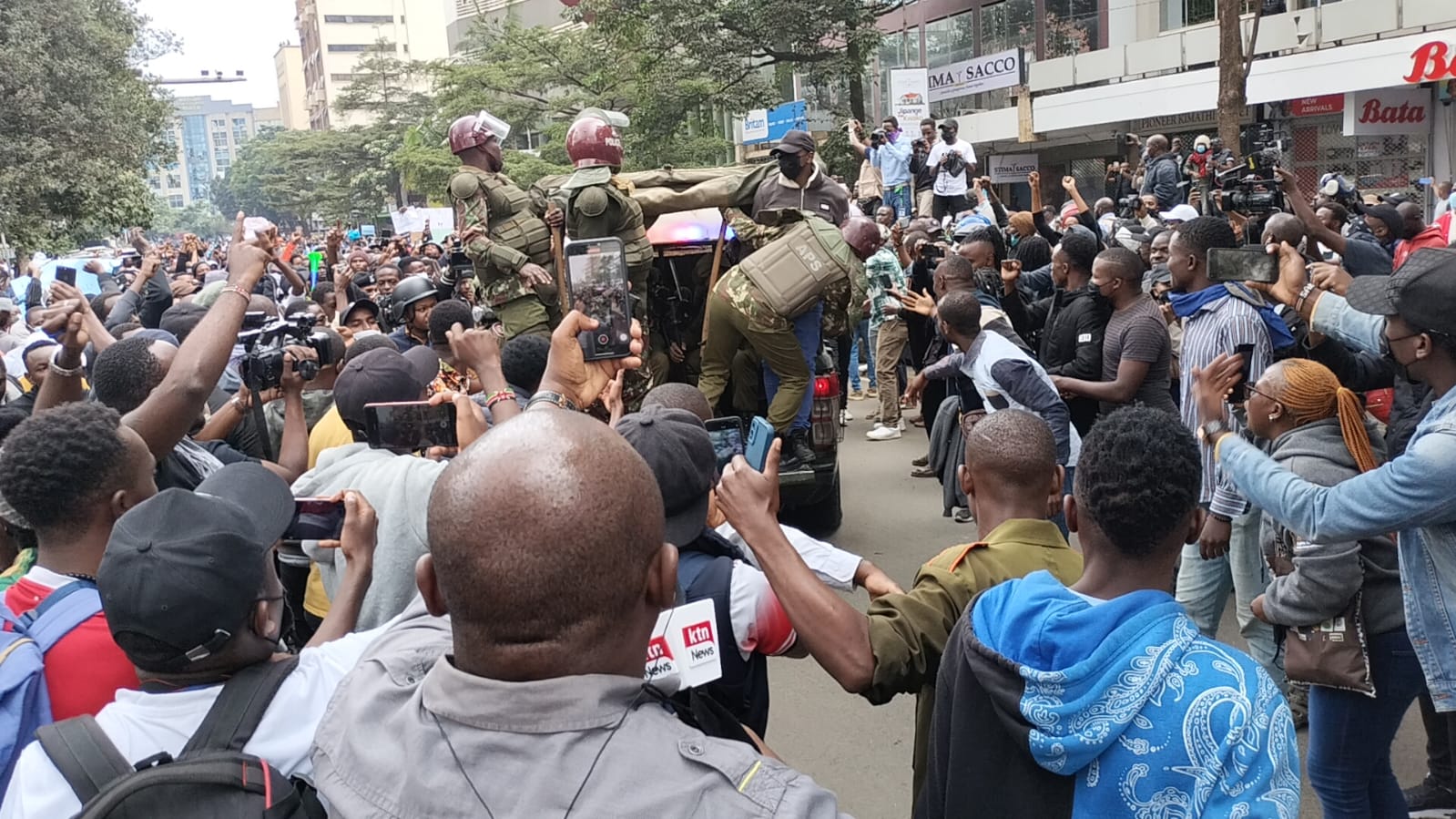The release of the BBC Africa Eye documentary Blood Parliament has sent shockwaves across Kenya, exposing allegations of the Kenya Defence Forces’ (KDF) involvement in the violent crackdown on unarmed civilians during the June 25th, 2024 protests.
The documentary has triggered an outpouring of grief, anger, and calls for accountability from Kenyans online.
Many expressed a deep sense of betrayal towards the KDF, an institution once held in high regard. Willis Evans Otieno captured the national mood, writing: “I was genuinely shaken to learn that the KDF, an institution we once held with deep respect, were part of this horror. Imagine: a Kenyan soldier, armed and trained to defend life, shooting an unarmed civilian from just 25 metres away. Who sent them? Who gave the order?”
Others, like @KenyaUnchained, lamented the lack of justice, noting, “Almost one year and no one held accountable.”
The frustration was palpable, with users such as @okinyitj angrily remarking, “In some countries, the military rescues citizens. In Kenya, the power-hungry set the military on its own people.”
The accusations against the KDF have left many questioning the state of the country. “We do not have a country,” @James041 declared, while @RBryan275 added, “We will need a new KDF once the People’s Government is installed. This one is fully compromised.”
Some Kenyans were particularly alarmed by claims that the military acted without proper authorisation. “There was no parliamentary approval for their internal dispatch,” stated @KigiriP.
Questions also lingered about the chain of command, with many asking: “Who gave the order?” as posed by @EricNyamweya and echoed by others.

The documentary’s revelations about soldiers turning their guns on civilians shattered public trust. “I lost respect for KDF the moment I realised the acronym conforms to Killers of Dreams and Future,” tweeted @eBvooff.
Similarly, @mc_sammico added, “Defenders of the nation pulled the trigger on the owners of the nation.”
For many, the pain was compounded by memories of other incidents of violence, with users drawing parallels to previous tragedies in Githurai and Kitengela.
“If it’s true, now you can connect the dots of Githurai and the cremations done those few days at the army barracks,” observed @LyshyaB.
The emotional toll of the documentary was undeniable. Alice Bossy shared her heartbreak, tweeting: “I have cried and cried for our beloved… So heartbreaking. Beautiful souls. May God comfort their families.”
Some users, like @Mwana_Hara_Kati, urged caution, claiming that Western media could have hidden agendas.
“I never trust Western media since they framed Gaddafi and Saddam. They are always after their interests.” However, the majority appeared to believe the documentary presented undeniable evidence of state betrayal.
Calls for the mainstream media to amplify the documentary’s findings grew louder. “Silence from the media is not neutrality, it’s complicity,” said @Bloc_Sokoro.
Meanwhile, investigative journalist John-Allan Namu praised the documentary as a “devastating account of the June 25th murders outside Kenya’s parliament. Curdles the blood.”
Questions surrounding the involvement of internal security forces also dominated conversations. “Who was in charge of internal security? Who sanctioned this?” asked @KenMwohe, highlighting the pressing need for answers.
As Kenyans process the chilling revelations, a common theme has emerged: the urgent demand for justice and accountability. “We shall remember not to forget,” vowed @RonnyReagan, capturing the determination of many not to let the events of June 25th be swept under the rug.
by Geoffrey mbuthia


